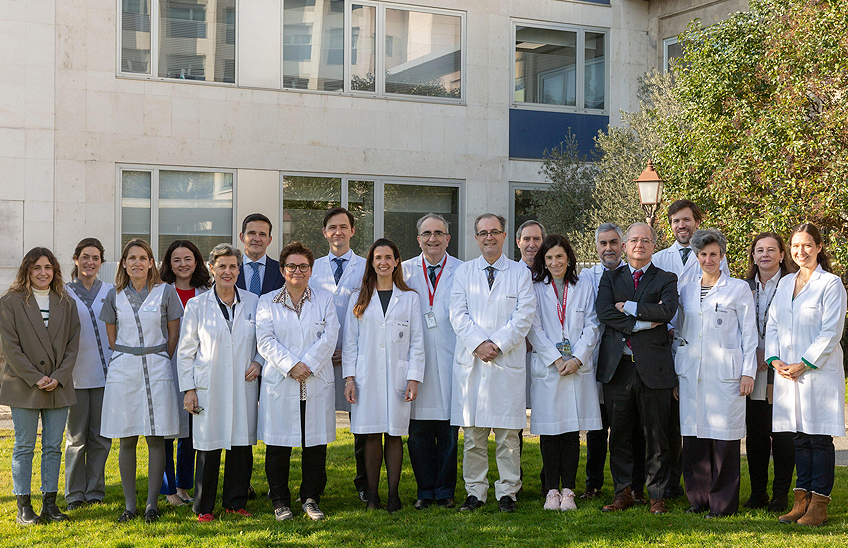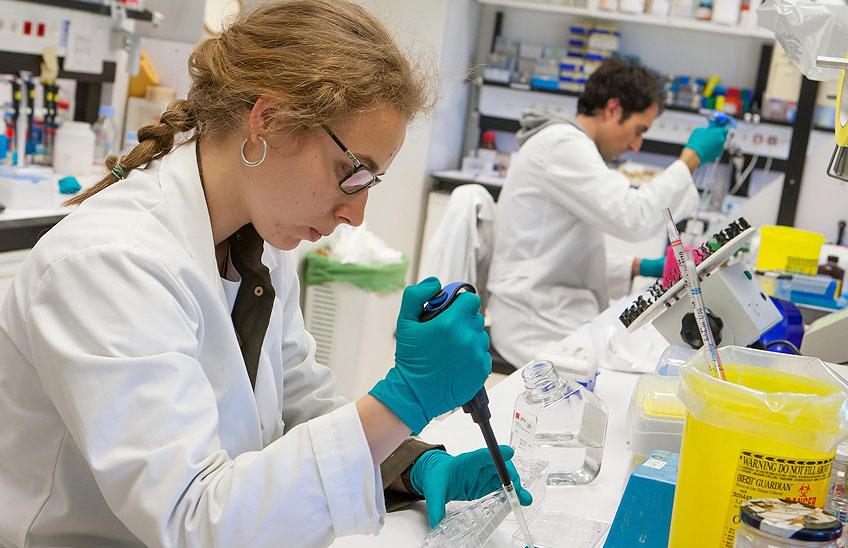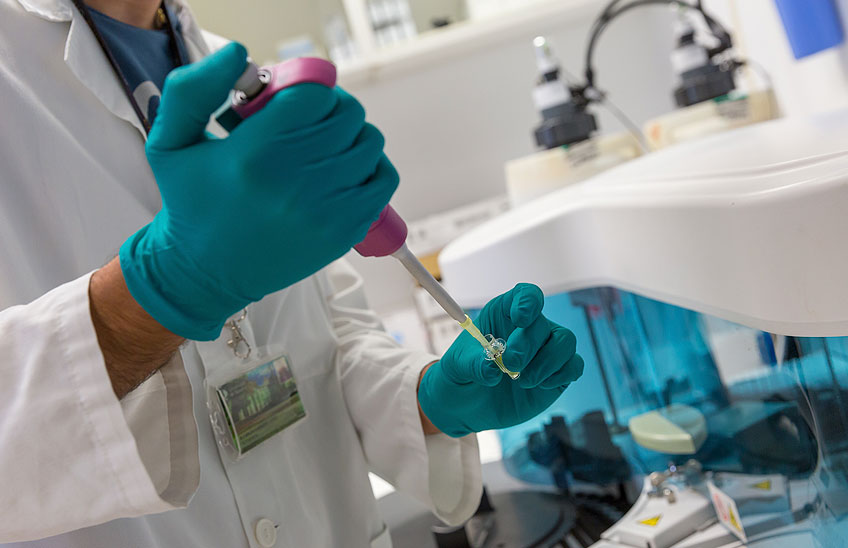The University promotes an incubator to foster entrepreneurship in the field of biosanitation
The incubator, whose goal is to transfer knowledge and apply its clinical and research and development capabilities to the market through startups, is working on the feasibility of 8 new projects.

FotoManuelCastells/Researchers and specialists from Clínica Universidad de Navarra and Cima, responsible for Innovation Factory and Research Management Service who make up the team of the health incubator of the University of Navarra.
13 | 02 | 2023
The University of Navarra has launched an incubator to continue promoting entrepreneurial projects related to the field of health. The goal is to transfer knowledge to the market through the creation of or participation in startups to which it can contribute value from its research and development capabilities, clinical, scientific, technological and business experience, and promote its development within the biosanitary sector. We are currently working on the feasibility and start-up of 8 new projects.
For this purpose, the incubator has the participation of specialists of the Clínica Universidad de Navarraresearchers from the Cima and the centers and institutes that make up its university community. This allows it to offer additional services to health projects such as strategic medical orientation, product or service definition or clinical validation. The incubator team is completed with a group of professionals with experience in incubation, business development , access to funding, transfer and management of the research and a network of external collaborators. In total, it has 300 collaborators, crowfounders and business angels.
This incubator, which will work with pre-seed and seed stage projects, will not require entrepreneurs to physically move to Pamplona. "The University of Navarra has the goal to improve society from the research, the teaching and the attendance. The promotion of this initiative will allow the University to help different projects directly related to health," says Belén Goñi, director of Innovation Factory, Center for Innovation and Entrepreneurship of the University of Navarra.
In turn, Dr. Bernardino Miñana, advisor doctor of the startup Polimerbio and director of the department of Urology of the Clínica Universidad de Navarra, highlights: "Being advisor scientist of a startup is an exciting and novel experience. It allows you to go from attendance patient to patient to being able to develop new products that benefit groups of patients. It's another dimension that makes you feel useful in a different way. This incubator provides a platform for many more entrepreneurial projects to be generated by researchers and Departments that give meaning to one of the great objectives of the University: to generate knowledge applied to improve the quality and life expectancy of people".
The incubator will accompany the projects in their different stages, will put them on contact with experts and will assist them in the search for funding. In this way, it will help the startups in their presentation to investors likely to participate in the early stages of development and will bring them closer to the sources of funding of the University ecosystem, including its network of business angels and other funds with which it has already co-invested.
In this new phase, the University of Navarra has taken a stake in the Innohealth fund, which specializes in healthcare and is managed by core topic Capital, with whom it will continue to collaborate.
Seven years of experience in transfer and entrepreneurship
The incubator specialized in health is the continuation of work that the University started eight years ago to intensify its transfer activity of knowledge by generating startups from its results from research.
Mariano Oto, CEO of Nucaps Nanotechonology, states: "There are different critical points where the incubator of the University of Navarra helped us to turn Nucaps into a business. First of all, its accompaniment, scientific and business advice. In addition, it also has a university ecosystem of Schools and institutes that continuously innovate at research and development to find that competitive advantage. Finally, the incubator has its own channels and partners for the search of financing and market access".
For her part, Ana Megía, co-founder and CTO of Medical Plasmas, a startup in which the University participates, points out that "it is a much smoother transition to go through a University, which knows what it means to travel a path, which has a Clinic that lives for patients and which is capable of getting involved in projects with a added value beyond the economic one. It is essential that someone helps you to ask yourself the questions".
In 2015, the University promoted an €8.5 million investment fund managed by core topic Capital to develop and boost startups. To date and as result of all this, it has incubated 11 startups, 7 of them based on results from research of the University itself and another 4 that approached it because they needed its research and medical capacity.
"We had designed the world's only cold air jet, we had the patents, but we couldn't do it alone. It was essential to find those colleagues who were enthusiastic about project and would join in. That's what we found at the University of Navarra," concludes Daniel Cortázar, CEO of Medical Plasmas.


